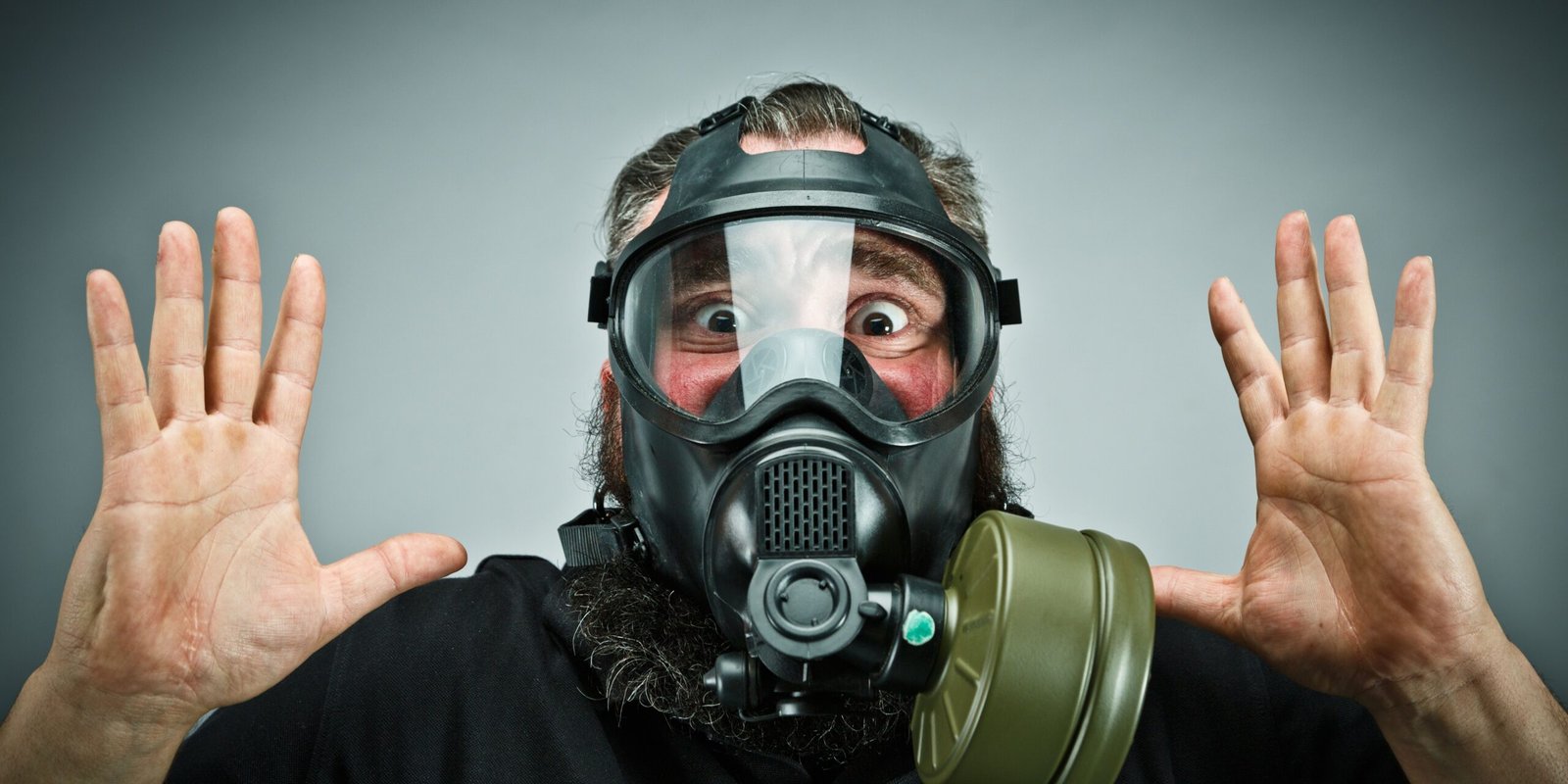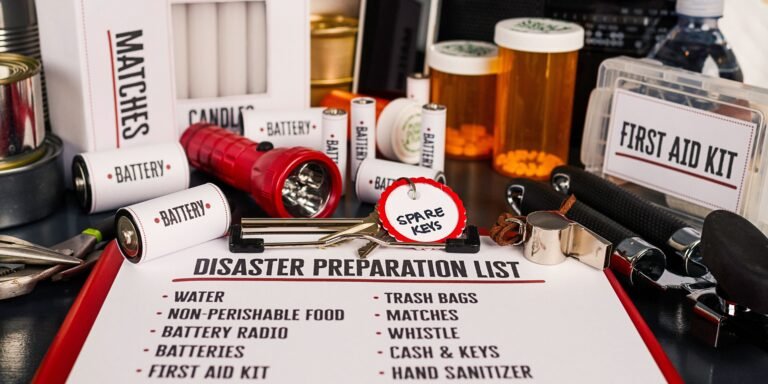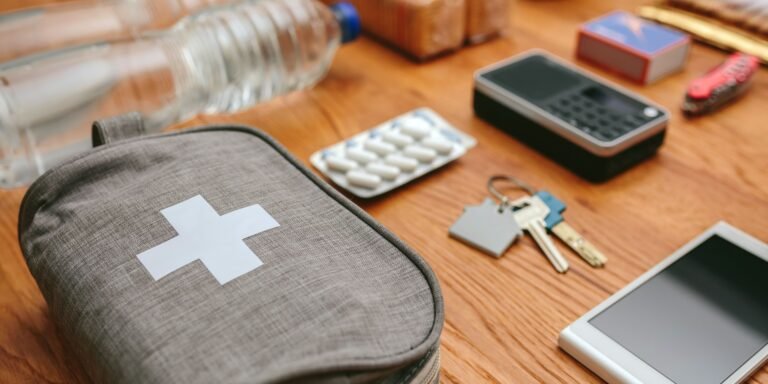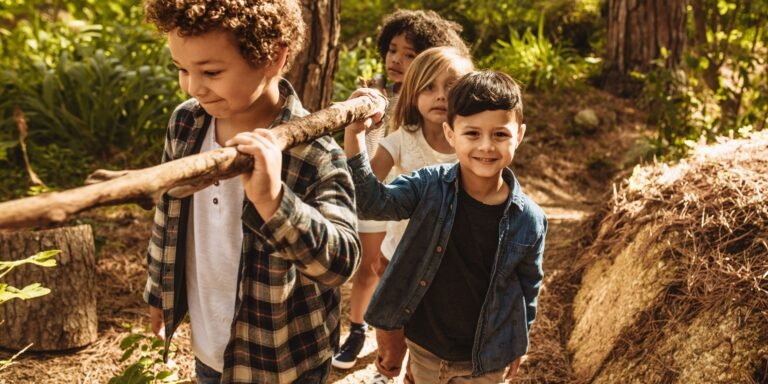7 Things Preppers Do That Others Think is Strange
This post may contain affiliate links, full disclosure here.
What is the first thing that comes to mind when you hear the term “preppers”? When I first heard the term, I thought to myself, “Preppers? What for?! There are people out there who have built bunkers in their back yards and gone insane in preparation for a disaster that may or may not happen, and even if it does, they don’t know when it will happen. These people are insane and extremely paranoid!”
As I began to conduct my own research and investigation, I realized, “Perhaps these people aren’t as insane as I thought!” Maybe they aren’t so paranoid after all! However, it’s still a little strange that people call themselves preppers!” BUT!! As I dug deeper, I realized there is so much to this prepping thing that I already do on a regular basis! Not to the extent that some may believe, or as you may believe, but I do these things in my everyday life!
Maybe they aren’t so crazy, weird, paranoid, or nuts after all, and they certainly aren’t going to die first! You’re probably already doing some of these things, albeit to a lesser extent than these “crazy preppers” without even realizing it! It’s probably not as extreme as you believe!
See also: Top 20 Barter Items to Stockpile
Reasons for Action Preppers may not be as insane as you think!
Here are seven practical things I’ve discovered to be extremely simple to do, and you’re already on your way to becoming a prepper. I’m sure you’re already doing the majority of them.
- Food Storage
- First Aid Kits
- Storing Gas
- 72 Hour Kits
- Gardening
- Water Storage
- Baking/Cooking From Scratch
Food Preservation
When you go to the grocery store, how often do you go to the canned goods aisle and pick up something like cream of chicken soup, chicken broth, or beans in a single can? I’m guessing it’s almost never! If I go to the store for something that has a shelf life of more than a week or two, I always buy multiples. Always! It’s always nice to have things on hand that have a long shelf life and that you use frequently so you don’t have to go back and forth to the store all the time for something as simple as canned corn, rice, or flour. You can do as little or as much as you want with this. If you keep a few extras of each of these items, you’ll be fine.
You can take this a step further by keeping a significant amount of back stock of almost everything you use that has a long shelf life in a storage room. There is no waste if these items are rotated on a regular basis. It is critical that you stock your food storage with foods that you will eat. If you don’t eat it right away, there will be no rotation and you will have to throw away a lot of expired food. Choose items that your family consumes so that you can rotate them through and have a long supply without having a bunch of things expire. You don’t need it in your storage just because it has a long shelf life.
One of my favorite aspects of having food storage is that it is essentially a mini-store that I can go pick from whenever I need to without having to go to the store, and it is all items that I know my family will eat. I can grab something off the shelf, toss in a few ingredients, and whip up a meal that everyone will enjoy.
Creating a 72 Hour Kit
This one may not be as common, but in less than a half-hour, you can have 72-hour kits for your entire family. Do you keep a “Go Bag”? Or, as we like to call it, a 72-hour kit for you and each member of your family? This is a three-day emergency bag that contains enough basic clothing and food for one person. A pair of pants, a couple of shirts, at least one pair of underwear, and a sweatshirt. A blanket of some kind would also be ideal in the bottom. Especially if you have a child who is emotionally attached to a blanket. See if you can find one that is identical.
If you have children, this obviously necessitates more effort because they grow and you must rotate their clothes more frequently. You’ll need to rotate the clothes in their bag in the same way that you rotate the clothes in their drawers. These do not have to be the most expensive clothes. Trust me, if you need this bag, you’ll be grateful for anything. It will suffice if you only wear t-shirts and a pair of pants that aren’t your favorite but still fit. You’ll be glad you planned ahead of time.
72-hour kits also include enough food for three days for each person. Water bottles, canned goods, and peanut butter If you have a baby, use baby food or formula pouches for three days. If necessary, a binky, as well as diapers and wipes, which must also be rotated. As the parents, I would pack a can opener, extra water, some plastic or old silverware, and possibly bar/dish soap of some kind, as well as something to cook the food in our bags. There are numerous options for small propane stoves and small pots to cook whatever you have packed in your bags. A small first-aid kit is also a good idea to keep in your bag.
Keep the children’s bags small and light so they can carry them. When selecting food, make sure it is something you know your children will eat. However, after a day or two, they will most likely eat anything.
I understand that thinking about this can be difficult or frightening, but being prepared can bring you so much peace, and you will be relieved that you and your children are prepared in this way if something unexpected happens in the near future. Check these bags on a regular basis to ensure that nothing has expired and that the clothes still fit. We keep them in closets so they don’t get damaged or wet, and so they’re easy to find and grab when we need them.
First Aid Kits
Do you keep a first-aid kit in your home? I’m sure everyone has at least the basics of a first aid kit somewhere in their home, no matter how big or small. Band-Aids, Neosporin, Tylenol, and Ibuprofen are all examples of first-aid items. If not, I would strongly advise you to keep a first-aid kit in your home.
Have you thought about making your own? If you prefer specific brands or know your family has specific allergies, such as a latex allergy, you may want to consider purchasing a container and assembling your own that is specifically tailored to your family’s needs.
If you go on outings where there is a specific risk factor, such as breaking a bone or being bitten by a bug, you should bring a sling in the appropriate size, portable ice packs for swelling, and cream or whatever is needed to treat the specific bite.
In the pharmacy isles of your local grocery store, you can find a first aid kit and almost everything else you’ll need to put together your own kit. We keep our first aid kit under our kitchen sink and use it whenever one of us or our children needs a Band-Aid or cream for a mosquito bite. It is in a well-known and easily accessible location.
Storing Gasoline
Do you keep a small gas can for your lawnmower in your garage or shed? Yes, we do. We keep a small two-gallon gas can on hand because we need it for our lawnmower. We can use a larger can for the mower or if we are running low on gas and don’t have time to run to the gas station to fill up but know we won’t make it to our destination without a little extra gas. Let’s be honest, we’ve all been there. We get busy and forget or don’t notice that the gas light came on yesterday, and we woke up late and don’t have time to stop at the gas station before work. Consider how happy you’ll be when you have a 5-gallon gas tank in your garage!
Gas should be stored in a gas can for no more than 3-6 months, depending on octane levels. The lower the level, the closer you can get to 6 months. High octane fuel should be stored for no longer than three months. Diesel fuel can be kept for up to a year. If you’re getting close, pour what’s left into your car and then refill the can the next time you go to the gas station. If the gas stations ever run out of gas, you’ll have at least a few days’ worths.
Every city has different limits and safety restrictions on how much gas can be stored on your property at any given time. Before you begin stockpiling, check with your city to see what the limit is and whether you will need a permit.
Gardening
Do you have a garden that you plant every year? This isn’t an option for everyone depending on where you live, but if you do plant a garden, you’ll not only have delicious fresh fruits and vegetables every year, but you’ll also be learning the incredible skill of growing your own food.
I’m almost certain that if you have a garden, you’ve had to figure out how to store some of the food. Everything seems to come on at the same time, and you can’t eat everything at the same time, so I’m sure you’ve learned or known how to can or prep food to be frozen or stored. This may appear to be a simple task, and it is! This can also be used in conjunction with food storage.
Of course, this food will not last nearly as long as canned goods. Unless, of course, you can make do with what can be canned. It must be kept frozen or cool, or else the shelf life can be measured in days. But this is a great skill to learn because it can not only help you be prepared, but it can also save you money, which is a huge win in my book! You can have a garden almost all year long if you build a greenhouse.
Water Storage
When you buy a case of water, you know you’re not going to drink every bottle on the same day, right? You purchase a case to store the water for later use. Just like preppers! I’m not sure about you, but when I buy a case of water, I almost never buy just one.
For a variety of reasons, it is critical to keep bottles of water (or whatever method of storing water you prefer) on hand at all times. If the tap water becomes contaminated and you are unable to drink it. If you need to go somewhere and need to bring water because the water there is unsafe to drink or there are no other water options. You can usually boil the water and make it safe to drink, but this is not always the case, and you may not have the means to boil water.
If you want to go a step further and have the space, you can purchase gallons of water to store. Water can be stored in 2-liter soda bottles that have been repurposed. Remember that plastic holds flavour, so the water you put in those bottles may have a slight soda flavour to it. Milk jugs should not be used. They are designed to degrade over time and are biodegradable.
I recall helping my father fill our 55-gallon barrel with water when I was a kid. To store a large amount of water for an extended period of time, you’ll need a clean, UV-resistant container with a screw-on lid. Fill the container with 1/8 teaspoon bleach per gallon. 2 tbsp. and 1 tsp. bleach for a 55-gallon barrel of water Keep the water in a cool, dark location.
Although water does not technically expire, it should be changed out on a regular basis to avoid it tasting stale. One 55 gallon barrel of water will last about two weeks for two people.
Check out our simple and automatic Water Storage Calculator by clicking on this link. This simple calculator will assist you in determining how much water you will need to store for your family. You select the number of people and the length of time you want to plan for, and the calculator does the rest!
Baking/Cooking From Scratch
Do you cook all of your meals from a box or do you have a recipe that you stick to? Knowing how to make more than mac and cheese from a box will come in handy if you ever find yourself without access to a store and must rely on food storage. It will give you practice with different flavors and help you understand what kinds of things go together and flavors that can be mixed. You won’t feel as lost if you don’t have any cooking experience. When you don’t have an infinite supply of options, you’ll be better off if you know how to follow a recipe and how to tweak it to make it what you want without ruining it.
A Few Other things To Concider
If you want to take it a step further, here is a list of items that will assist you in taking your preparedness to the next level. There are also some simple things to consider and investigate that every house/home should have.
Have you installed a carbon monoxide detector in your home? Consider installing a fire extinguisher in your kitchen. How effective is your home insurance policy? Is it covering everything you believe it should, or do you need to look for a new policy? Do you have renters insurance if you rent? Do you have a backup generator that can provide power to your home? Do you have any shelves or storage space for food? Are solar panels a viable option? How well prepared are you if you become stranded in your car?
Are Preppers Crazy, Weird, or Paranoid? Bottom Line
These are all excellent points to consider when considering how insane or paranoid preppers are. The best part about prepping is that you can be as prepared as you want or as much as you have room for. You can think preppers are insane while still doing a little bit here and there in your own life to be ready for unexpected events. The best part, in my opinion, is that there is no wrong way to do this. What works best for your family and situation is the best way to proceed. Begin with something small, and you’ll soon be the neighborhood house that everyone wishes they could be at in an emergency!
We never know when a natural disaster will occur. It could be a flood or a hurricane in an area with a lot of ports where a lot of our country’s goods come in. Remember that just because you don’t live in the areas affected by these disasters doesn’t mean you won’t be affected in the future. It could be a devastating earthquake. Perhaps something happens with the government, and the exchange of goods or oil changes, putting our shipments of gas and food in jeopardy until who knows when.
It never hurts to be prepared! You never know when your child will have a blowout diaper, but you always have extra diapers, wipes, and clothes in the diaper bag, and when you don’t, it can ruin plans or cost you extra money to fix the problem. Don’t let it happen like that!







